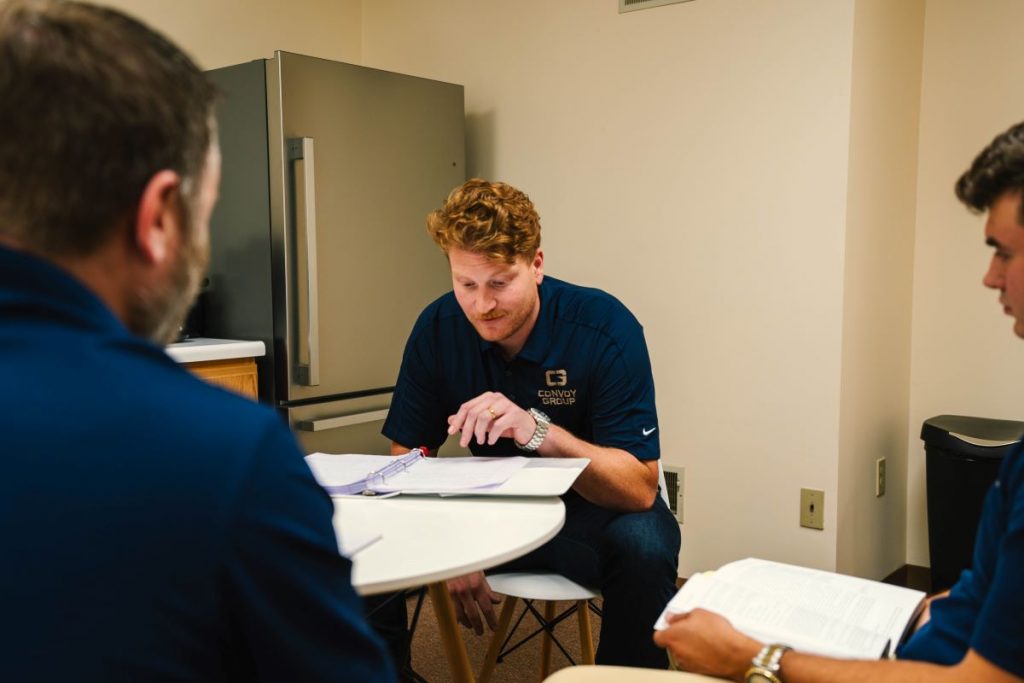| Oct 22, 2024
Security Consulting for Organizations and Individuals: Overview and Considerations

“If all you have is a hammer, everything looks like a nail” – Abraham Maslow.
Security Consulting Definition
Security consulting is a term that refers to professional services offered by private security experts or firms. These consulting services range from security program development for organizations, to specialized security consulting services such as recovering and repatriating individuals who have been involved in emergencies overseas, and training; there are also physical security consulting services, which includes services such as threat and security vulnerability assessments and recommending access control infrastructure.
To summarize, security consulting services comprise general, specialized, and physical security consulting services provided by expert security consultants or firms.
Security Consulting Services for Organizations and Individuals
Threat and Security Vulnerability Assessments
Vulnerability assessments focus on identifying threats and weaknesses in security. They are designed to analyze and calculate risk to individuals and infrastructure, and these assessments support broader risk mitigation strategies. While threat vulnerability assessments and security vulnerability assessments vary in focus, approach, and perspective, the ultimate goal for each is to mitigate threats and provide actionable insights to fortify security measures.
Security Program Development for Companies and Non-Profits
Developing a security program involves working with an organization’s stakeholders to develop a strategic security plan. This process involves internal and external assessments, gap analysis, security and policy procedure development, and professional development for security staff and volunteers. There are regular progress review meetings, and communication between the security consultants and the company or non-profit should be continuous to ensure there is constant alignment regarding the strategic vision.
Validation Exercises for Law Enforcement and Executive Protection Teams
Security consulting validation exercises prepare your team for real-world scenarios. These exercises are designed to simulate the situations law enforcement officers and executive protection teams will find themselves in, and test individual and organizational planning, mission execution, and contingency response capabilities.
Emergency Personnel Recovery and Repatriation for Individuals and Groups
Personnel recovery and repatriation consulting services are the combined efforts to find, recover, and bring home those isolated by emergency events such as conflict or natural disasters. Personnel recovery and repatriation efforts require a substantial amount of intelligence support, and these services almost always include carefully vetted local partners because of the local knowledge required to execute these sensitive operations.
Private Security Vendor Capability Assessments for Companies Working Internationally
Private security vendor assessments help companies evaluate the capabilities of their contracted security force overseas. These consulting services help ensure that a company’s security partners meet the highest standards of security and reliability through a structured evaluation of individual and collective task proficiency, security operations management infrastructure and processes, and a final real-world culmination exercise.
Top Security Consulting Considerations for Clients
Security Consultants Should Have Robust Professional Experience
Clients should consider security consultants with experience that spans the government and private sectors. On the government side, robust professional experience can include military special operations, federal law enforcement, or the intelligence community. Private sector security consulting experience should include positions that require substantial cross-cultural communication, stakeholder engagement, and working at the organizational level to formulate policies and manage policy implementation.
Security Experts Should Possess Breadth and Depth of Knowledge
Maslow’s Hammer, also known as the Law of the Instrument, is a cognitive bias that cautions against the limitations of single-minded approaches to problem solving. In the world of private sector security consulting, experience that is skewed too heavily toward practice may influence how rigid a security consultant’s perspective is. Conversely, primarily academic experience may skew a consultant’s perspective too much toward the abstract, which can result in security programs that lack efficacy at the level of implementation. A healthy balance of professional and academic security experience provides consultants with a perspective that is conceptual but grounded in a hard-earned understanding of what actually works.
Security Culture and Approach Should Align with the Client’s
Clients must carefully evaluate how the consultant or firm’s approach will align with the company or organization’s culture. As a client, it is important to have a dialogue with your prospective consultant to ensure that their approach to security is not orthogonal to the organization’s culture, values, mission, or mandate – this is especially true when the consulting services are broad and include security program development, which require the ability to engage with stakeholders from the executive level, and even other third-party security providers or unpaid volunteers.
Security Consulting is a Value-Add for Organizations and Individuals
Security consulting services are a value-add for both organizations and individuals because they mitigate risk, enhance overall security posture and preparedness, and enable effective response to emergencies. Security consulting services, by design, should be highly tailorable; the security consulting experts should be experienced, possess breadth and depth of knowledge, and there should be close value alignment between the security consulting firm and client. At Convoy Group, we specialize in custom security consulting services, and our security experts come from the special operations, intelligence, law enforcement, and corporate security communities.
